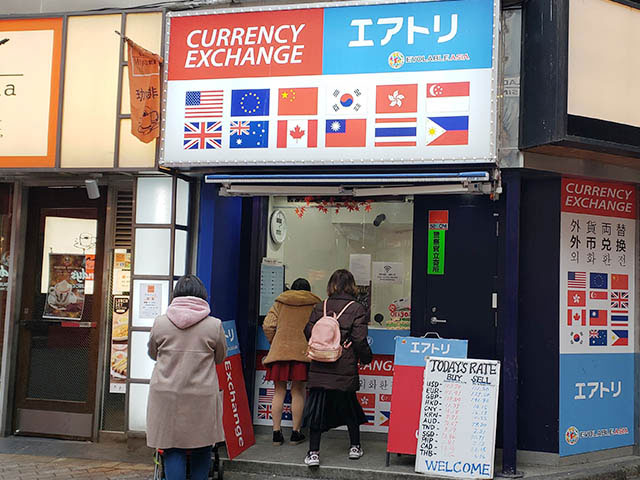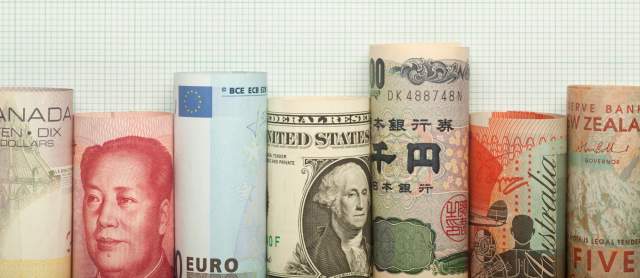The cost of currency conversion is becoming increasingly important in the worldwide economy. They are a major factor in any financial transaction whether it's a travel abroad, conducting business overseas or managing investments in foreign currencies. These charges can be different depending on who is offering the service, how the exchange was done, and what currencies are involved. When you know how to avoid these fees, you can save money and make better decisions. These are the 10 most comprehensive tips for currency conversion fees. These can be advantageous to investors, travelers and even businesses.
1. Find out about the various types of currency conversion fees.
Conversion charges for currency can take different types. These can include transaction charges and service charges. Transaction fees are fixed charges for every exchange, whereas charges for service may be proportional to the amount that is converted. If the service provider provides an exchange rate less favorable than the market, they will increase the rate. Knowing the different types of charges can assist you in choosing the most suitable option for your budget.
2. Compare the prices of several providers
It is important to evaluate the rates of various currency exchange companies before you decide to exchange your currency. Banks, currency exchange kiosks and online platforms typically offer different fee structures and exchange rates. Make use of currency converters for the most current rates, and also to calculate the total cost including charges. This will help you identify the best price and could save you a significant amount, especially when you are exchanging large amounts.
3. You can find free option to exchange currency
Certain financial institutions or banks offer accounts with no cost currency conversion, or lower costs for certain transactions. For example online banks and fintech companies typically offer free currency conversions for account holders. Consider opening an account for foreign exchange with such an institution if your dealings with foreign currencies are often.
4. Beware of DCC charges
If you're paying with a debit or credit card overseas, it's likely that you'll have the option of paying in local currency using a program called Dynamic Conversion. It may be convenient however you'll usually pay higher conversion costs and pay a lower rate of exchange. Be sure to avoid the extra costs by paying in local currency. Also, you'll receive the most favorable exchange rate.
5. Use credit cards that do not charge foreign transaction fees.
You can save money using credit cards that do not charge a fees for foreign transactions when you travel. Many travel credit cards provide this benefit. They allow you to buy abroad without additional charges. Choose a card with favorable exchange rates, and one that is compatible with your spending routine. This will help you to minimize costs when traveling.
6. Use ATMs to withdraw currency
ATMs for withdrawing cash in the local currency will often result in better exchange rates compared to currency exchange kiosks. Be aware of the potential charges due to both your bank as well as the ATM operator. Find ATMs that are affiliated with your bank in order to cut costs and you should always choose to withdraw in the local currency to avoid dynamic exchange charges.
7. Plan Currency Conversions in Advance
Avoid exchanges that occur late at night near airports or tourist attractions because the fees could be expensive. It is cheaper to save money by preparing your currency exchanges ahead of time. You should research the most efficient local option for currency exchange. You can exchange a small amount to cover expenses immediately prior to your departure to return, and then convert a larger amount at more favorable exchange rates when you arrive.
8. Monitor Exchange Rate Trends
You can determine the ideal moment to convert currencies by watching out for any changes in exchange rates. The fluctuations in exchange rates can impact the cost of fees and charges. If you keep track of these trends, you can plan your conversions. Make use of the past data or financial news to inform your decision-making, and you can take advantage of positive market conditions.
9. Factor in Hidden Fees in transactions
- Be aware that some providers may have hidden fees that aren't readily apparent. They could be as simple as service charges and maintenance fees on foreign currency accounts. Ask questions and study the fine print to ensure that you understand all the costs of the currency exchange. This diligence may prevent you from being charged in the middle and help make your financial decisions more informed.
10. Consult financial professionals for large transactions
Financial experts are an excellent resource if you need to conduct large transactions, or if your exchanges are complex. Currency specialists provide valuable insights on how to cut down costs for conversion, as well as optimize your transactions. This is particularly important for those who are involved in international trade as well as investors who want to manage their currency exposure effectively.
These tips can aid you in navigating the complexity and risks of exchange rates. This is true whether you are travelling overseas, conducting business abroad or managing your investment in foreign currency. Knowing the subtleties of the conversion fee allows you to make decisions about your finances that are in line with your personal or professional goals. Have a look at the top published here for more info including cdn to usd, exchange rate, rmb to usd, usd jpy, mexican peso to usd, usd jpy, usd to cop, usd to euro exchange rate, us to baht, indian rupees to usd and more.

The Top 10 Tips For How To Pay In Foreign Currency
When you're running a business, travelling abroad, or managing investments, your choice of payment method is critical for ensuring that financial transactions are managed effectively in the modern world. Your choice of payment can impact your costs, ease of use and security. The fees, exchange rates and acceptance levels associated with various payment methods may affect your overall experience. Understanding the nuances behind different payment options can help you make well-informed decisions that are in line with your financial objectives. These are the most comprehensive guidelines on how to select and implement payment methods for your financial ventures.
1. Understanding the types of payment methods that are available
Be familiar with options for payment, including cash, credit/debit cards mobile payments, and digital wallets. Each option has both advantages and disadvantages with regards to convenience, cost, or acceptance. While cash is universally accepted however, it is less safe and more difficult to use for large transactions. Knowing the strengths and disadvantages of each method can help you choose the best option for your requirements.
2. Be aware of the currency conversion charges
- Be aware of possible currency conversion charges when using your debit or credit card to make international purchases. The charges can vary greatly between credit card and bank firms. Certain cards come with charges for foreign transactions, while others do not. Make sure to check with your credit card provider or bank before traveling overseas or purchasing items to determine the policies they have regarding currency conversion costs. Pick cards that reduce the costs associated with these transactions.
3. No foreign transaction fee credit cards
- If your plan is to travel internationally or to make purchases abroad it is recommended to use credit cards that do not charge fees for foreign transactions. Many credit cards aimed at travellers have this option. It lets you purchase items abroad without having to pay fees. This could result in significant savings, especially for frequent travelers who may make large purchases overseas.
4. Use mobile payment choices
Mobile payment services, like Apple Pay, Google Pay and other digital wallets provide an easy way to conduct transactions without the need to carry credit or cash. These options are usually enhanced with security features such as biometric authentication and tokenization that make them a good alternative for in-person or online transactions. Consider mobile payments for small purchases that will help you manage your budget.
5. Pay Attention to ATM Fees when withdrawing cash
If you're on the road and need to withdraw money, be aware of ATM charges. They can be very different. Certain banks charge fees for withdrawing money internationally, while other banks may work with local banks in order to provide fee-free withdrawals. You can reduce your expenses by looking for ATM networks with less charges. Consider also the possibility of withdrawing large amounts at once to reduce the amount of transactions and associated fees.
6. Plan your backup payment methods
It is essential to have a backup plan of payment in case your primary method fails, or you have to lose it. Have a second credit or debit card, cash, or a mobile payment method to make sure you're able to make purchases. This is especially important when you travel, since certain areas may not be able to accept every payment method. If you prepare ahead you'll be able to handle unpredictable situations more effectively.
7. Keep track of exchange rates and make Better Choices
When you purchase foreign currencies keep track of the current exchange rates. This will allow you decide whether you should convert your money or make use of your preferred payment method. Software and applications that track the exchange rate in real-time will allow you to determine the most the most favorable conditions for currency converters. This knowledge will help you decide on your method of payment.
8. Make sure you are aware of security measures
Security is a factor to be taken into consideration when choosing the payment method. Review the security options provided by your bank, credit card company or payment platform. Look for options with fraud protection, transaction alerts and encryption technologies. Choosing secure payment options will protect you from fraud or unauthorised transactions.
Reviewing Payment Policy Guidelines for your business
Understanding the payment policies of your company is vital to managing cash flow and customer transactions. Research different payment processors as well as their costs features, acceptance rates. Choose a method of payment that is compatible with your goals for business. A low transaction fee is important, but so is speedy processing time or convenience for the client. The right payment method can improve customer satisfaction and streamline your business.
10. Learn More About Investment Payment Methods
Understanding the various payment options for purchasing and selling assets is essential for investors. Different brokerage platforms offer various payment options for opening an account or making trades. Know about the costs and processing times that are associated with each method. It is also a good idea to think about how margins or leveraging can impact your overall strategy.
With these helpful suggestions on payment methods you can navigate the complexities of travel in business, conducting business, and tracking investments more efficiently. Knowing what options are available, associated fees, and security options will allow you to make more informed choices in your financial life that are compatible with your objectives. A secure method of paying will enhance your financial experience overall and provide you with peace of mind and can save you money. View the recommended CZK to EUR for website tips including jpy usd, rs to usd, usd to mexican peso, yen to dollar, usd to eur, pesos to us dollars, usdthb, us dollar to rupees, cop to usd, us dollar to mexican peso and more.
